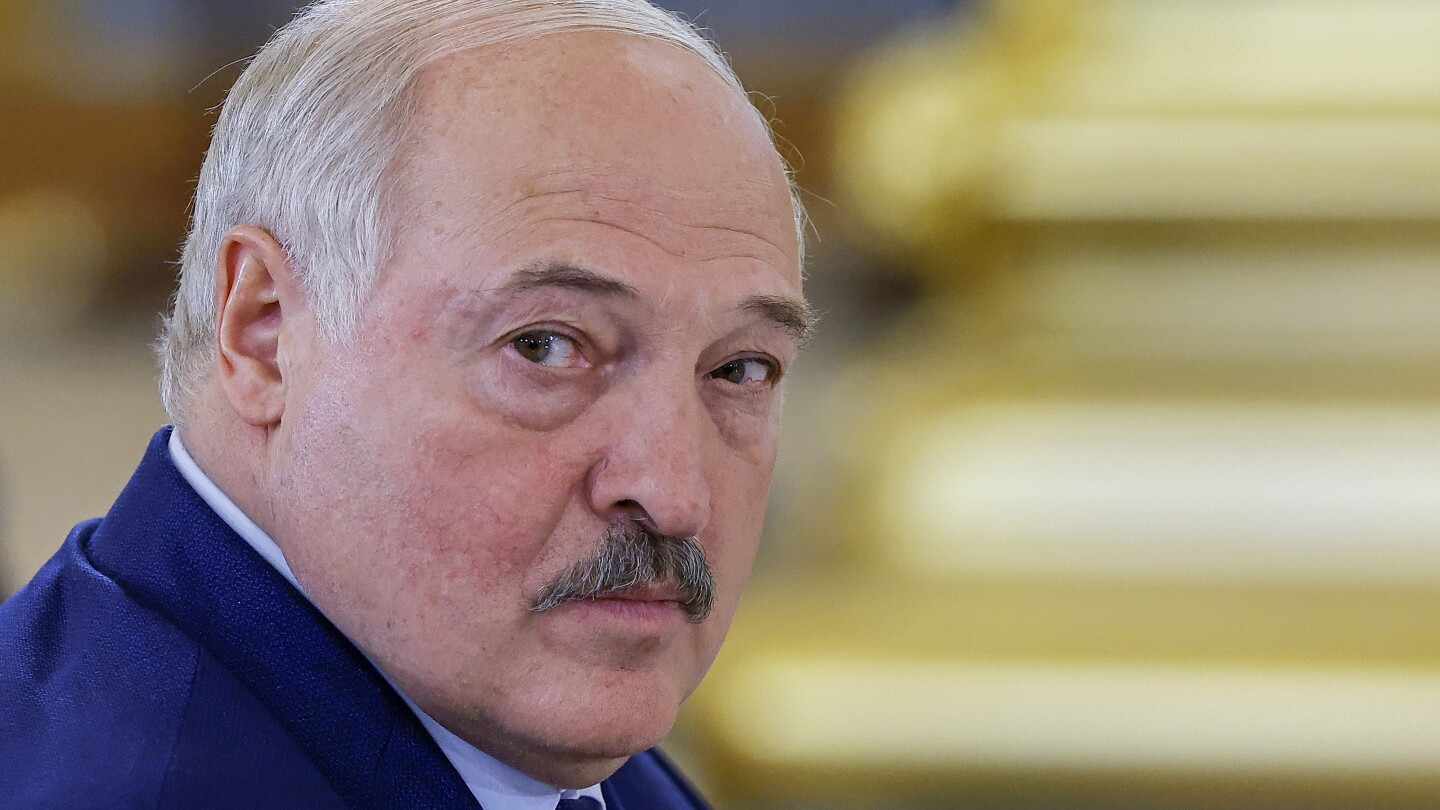TALLINN, Estonia (AP) — Belarusian authorities on Wednesday expanded visa-free travel for residents of 35 European countries, including members of the European Union and the United Kingdom, as part of authoritarian President Alexander Lukashenko’ s efforts to improve relations with the West.
The Belarusian Foreign Ministry said Lukashenko has approved temporary visa-free travel for citizens of European nations arriving by rail or road, describing the move as a reflection of the country’s “openness and peacefulness.”
The new rules, which become effective Friday and last until the end of the year, allow European travelers to stay in Belarus for 30 days without visas. They broaden the existing visa-free regime for residents of European countries arriving by plane.
Lukashenko, who marks 30 years in power on Saturday, has ruled the ex-Soviet country of 9.5 million with an iron fist, relentlessly suppressing dissent and winning the nickname of “Europe’s last dictator” in the West. His isolation deepened after a brutal crackdown on protests that followed his re-election in an August 2020 presidential vote that the opposition saw as a sham.
More than 35,000 people have been arrested and thousands were beaten in police custody, triggering the EU and the U.S. sanctions that badly hurt Belarus’ Soviet-style economy.
Valery Karbalevich, an independent political analyst, said the Belarusian authorities’ decision to expand visa-free travel for Europeans reflected an attempt by Lukashenko to reach out to the West as he prepares to seek a seventh five-year term in next year’s election.
“Lukashenko is trying to return to his policies of balancing between the West and Russia because he doesn’t want to hold the 2025 election in a ‘besieged fortress’ and wants the West to recognize its result,” Karbalevich said.
Lukashenko has survived the protests thanks to political and economic support from his main sponsor and ally, Russia, but in an apparent attempt to reduce his dependence on Moscow he recently signaled a desire to mend ties with the West.
Earlier this month, the Belarusian leader promised to release prisoners who were detained amid the post-election protests and are now seriously ill. So far 18 political prisoners have been released, including Ryhor Kastusiou, an opposition party leader who is suffering from a severe form of cancer.
Some were freed under an amnesty while others were pardoned. Those who were pardoned had to publicly admit their guilt.
Belarus’ Viasna human rights group counts about 1,400 political prisoners in the country, including its founder, Nobel Peace Prize laureate Ales Bialiatski. Of those, more than 200 people are seriously ill and require medical care, Viasna said.
The United States and the European Union have welcomed the release of some political prisoners but called on Belarus to free all those jailed during the 2020 protests.

